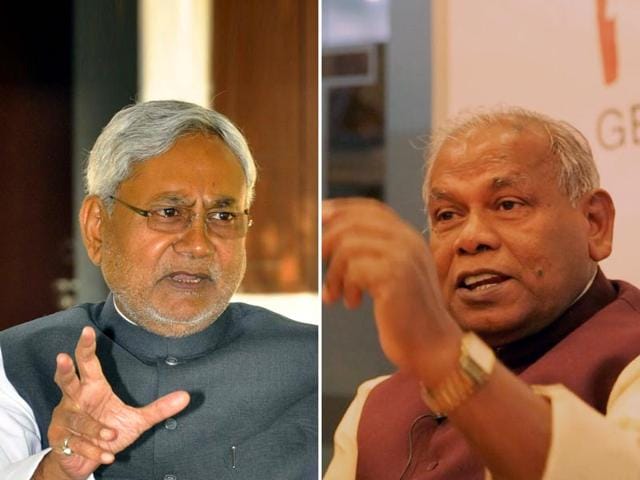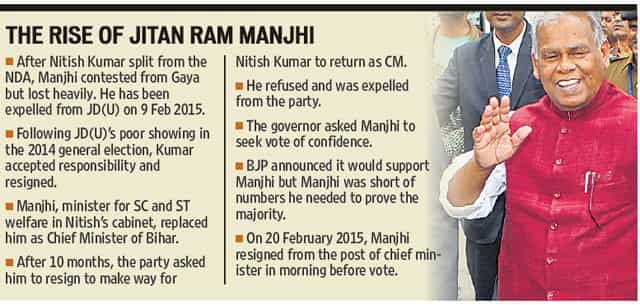Musahar community wants Manjhi back to finish development work
Members of the dominant Musahar community in Parvarti Nagar village, nestled in the foothills of a hillock in Khizrsarai block of Gaya district, are seething with rage.
Members of the dominant Musahar community in Parvarti Nagar village, nestled in the foothills of a hillock in Khizrsarai block of Gaya district, are seething with rage.

They have plenty to be angry about. Basic amenities are mostly non-existent and even Jitan Ram Mamjhi, a fellow community member who was the state’s chief minister till a few months ago and hails from the nearby village of Mahkar, did little to change their fortunes.
In a village where the men-folk of Bihar’s lowest of the low castes idle away their time by drinking toddy, leaving the women to work and earn, only one hand pump was installed during Manjhi’s tenure, but even that does not work.
Yet, the anger of the villagers is mostly directed against the current chief minister and JD(U) leader Nitish Kumar.
“Manjhiji was willing to help our lot but he couldn’t do anything because Nitish abruptly removed him from the chief minister’s chair,” is the general refrain of the residents of Parvarti Nagar.
After falling out with Nitish and floating his own Hindustani Awami Morcha (HAM) that is allied with the NDA, Manjhi seems to be riding a sympathy wave.
In many other villages in Khizrsarai block that falls in Atri assembly constituency, Manjhi seems to have acquired an iconic status. Residents speak of him reverentially and say Nitish humiliated him. It is time for revenge, they say. This sudden iconic status of Manjhi is likely to benefit the NDA.

Even Prime Minister Narendra Modi acknowledged his impact at the Gaya Parivartan Rally, when he observed, “In the Lok Sabha elections, Gaya’s Gandhi Maidan was not even half full, but this time, it is full and overflowing”, he said. The Prime Minister then went on to describe Manjhi as a friend, a son of the soil and an icon.
Manjhi’s emergence as a Dalit mascot could prove crucial, especially in central Bihar. The Dalits account for 16% of the electorate and could influence the outcome in at least 38 reserved seats.
In Bodh Gaya assembly constituency, which has a significant presence of Mahadalits, Manjhi’s popularity among his caste men seems to have grown phenomenally.
Ironically, only a year ago, he had finished a poor third in the Gaya Lok Sabha constituency – a seat won by the BJP.





